ASTANA – Ardak Bukharbekov became the first chorist from Kazakhstan to participate in the World Youth Choir (WYC), an international ensemble of the best young choral singers using music to transcend boundaries and spread the message of peace, unity and harmony. An international choir experience has provided a unique opportunity for Bukharbekov to connect with a diverse range of inspirational international artists, he said in an interview with The Astana Times.
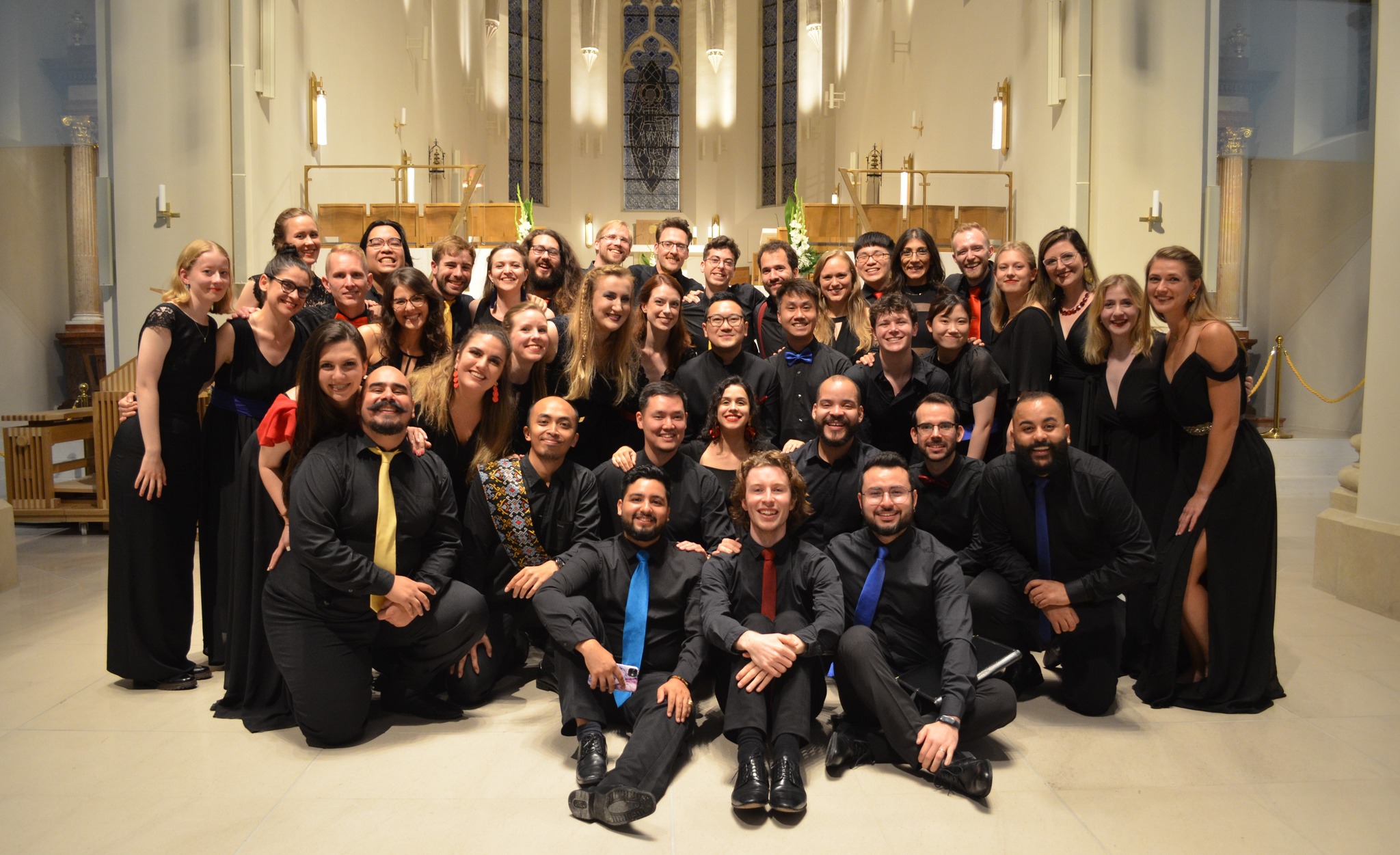
The WYC gathered 40 singers from 26 countries for a rehearsal session and a concert tour in Croatia, Slovenia and Hungary. Photo credit: World Youth Choir Facebook page
Known for its multicultural composition and multilingual performances, the WYC gathered 40 singers from 26 countries for a rehearsal session and a concert tour in Croatia, Slovenia and Hungary for two weeks in June.
First experience at the World Youth Choir
Bukharbekov is part of the Erkegali Rakhmadiyev Philharmonic Chamber Choir in Astana. In 2019, he was the only participant in the WYC from Kazakhstan and Central Asia. Back then, it was a new experience for him to harmonize with different nationalities who performed in France and Portugal.
This year Bukharbekov joined the choir’s alumni session that gathered the participants of the previous sessions.
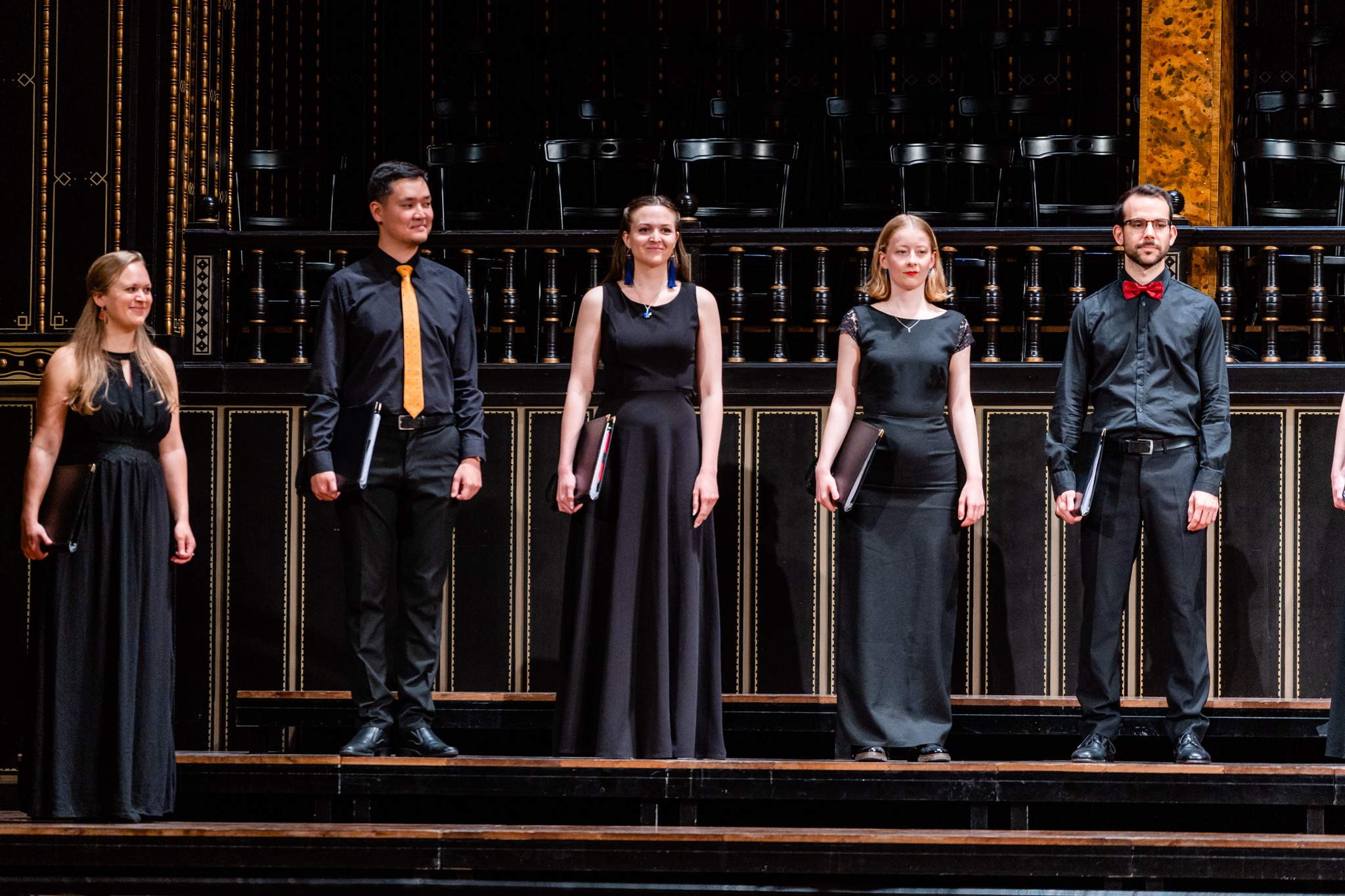
Bukharbekov (second from left) was the only participant in the WYC from Kazakhstan in 2019 and in the 2023 alumni session. Photo credit: World Youth Choir Facebook page
One of the country’s most prominent conductors, Artistic Director and Chief Conductor of the Astana Filarmonia chamber choir, Gulmira Kuttybadamova, was behind the launch of the auditions in Kazakhstan.
“In 2019, she was offered to organize auditions in Kazakhstan, because it and Central Asia [as a whole] were never represented in this project before. For the first time it [audition] was held in Kazakhstan and I applied,” said Bukharbekov.
One of the key selection criteria was English language proficiency. “All rehearsals and all the processes are held in English. So it was one of my advantages,” he said.
He described his first experience as emotional and delightful, giving him a chance to make friends among representatives of diverse nationalities.
Repertoire and peculiarities of singing abroad
The soaring voices of 40 choristers singing classical and sacred songs are expected to be powerful.
“This time the repertoire was mostly comprised of European classical and sacred music from composers like Claudio Monteverdi, German Johannes Brahms and Hungarian Franz Liszt. Other pieces were from renowned Hungarian composers like [György] Ligeti and [Zoltán] Kodály,” said Bukharbekov.
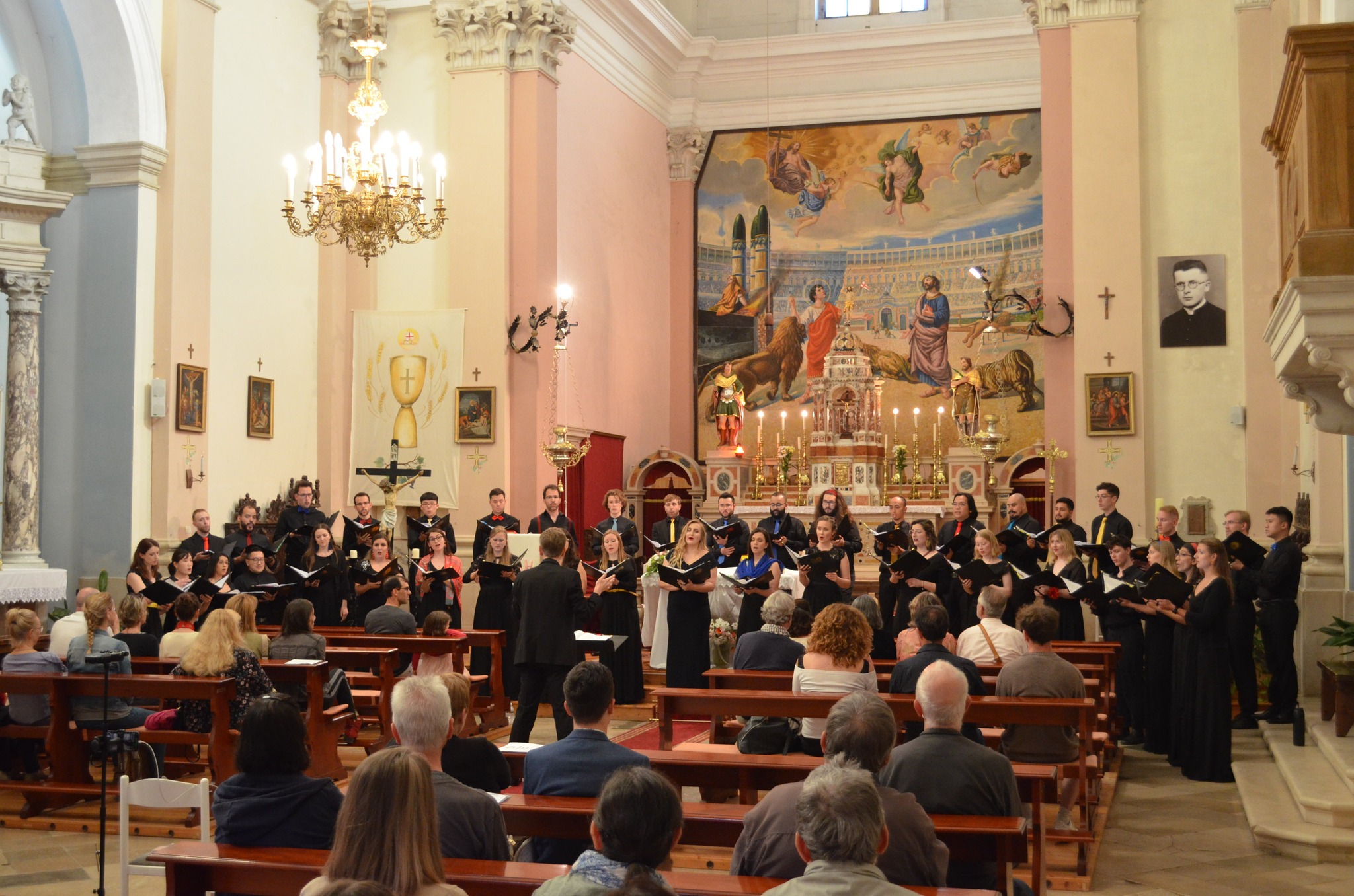
The choir performed at Sts. Vitus, Modest and Crescentia’s Church in the Croatian Grožnjan town. Photo credit: Božidar Raos/World Youth Choir Facebook page
The WYC has a long association with an ever-varied repertoire.
“We had four days of rehearsal sessions in Croatia. Then we had a concert in Croatia and then in Slovenia and Hungary. That’s why we performed Hungarian pieces, a Croatian piece and a piece in the dialect of Slovenia,” he said.
For the Croatian audience in the small town of Grožnjan, the concerts featuring polished performances gave a real sense of interaction between the choirs and the audience.
“We performed there in a church and most of the audience were local people from the town and neighboring towns who came to see our concert and I think it was a good chance for them to see the performance of a high-quality ensemble,” said Bukharbekov.
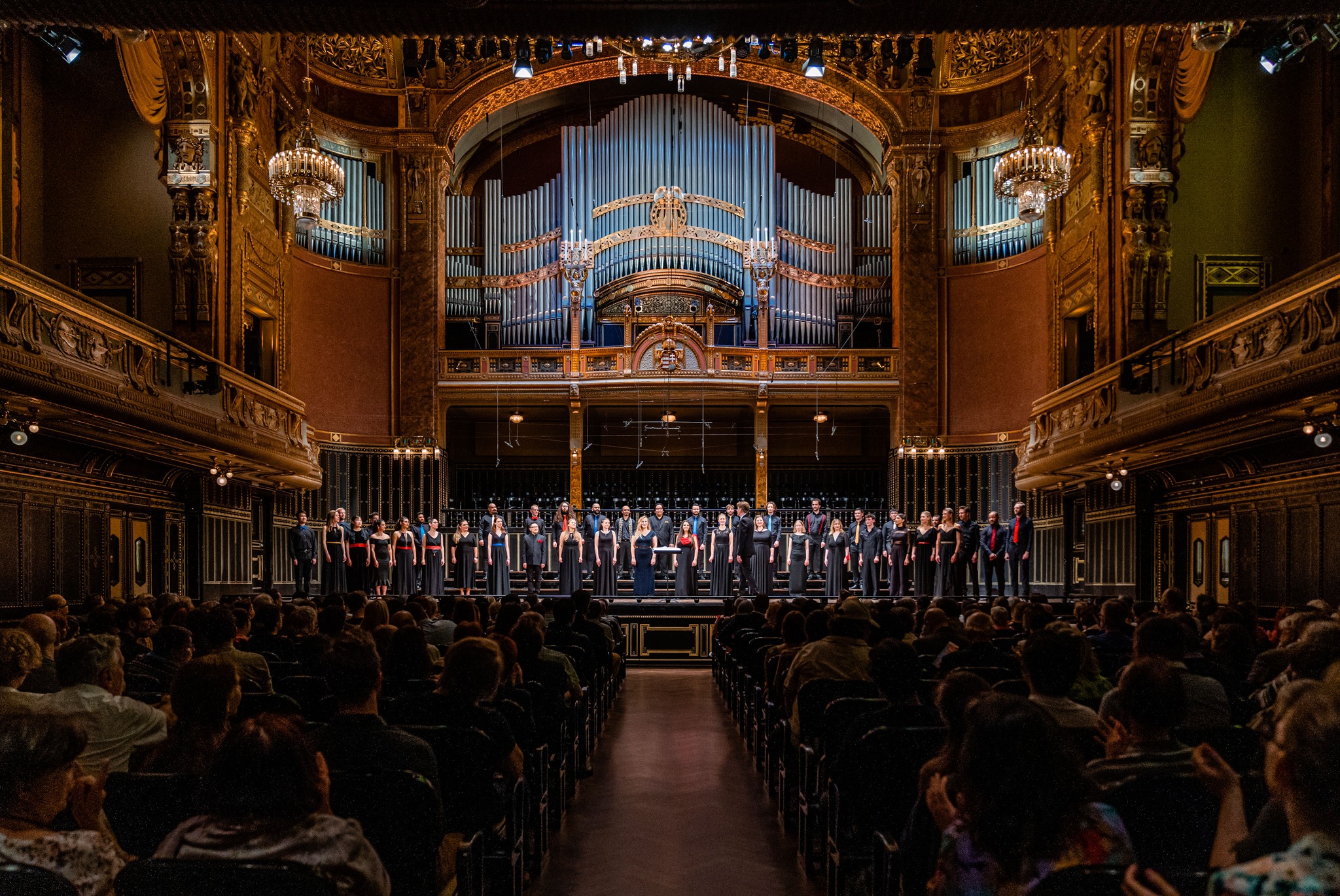
The concert in the Liszt Ferenc Academy of Music in Budapest was one of the most unforgettable experiences for Bukharbekov. Photo credit: 4K Media Studio/World Youth Choir Facebook page
“In Slovenia, we performed in the Academy of Music. The difference was that some authors of pieces we performed in our concert were in the hall. It was a big honor,” he said, referring to the first performance of the commissioned piece “The Bells” by Nana Forte with the author in the audience.
The choir performed their concluding concert in the Liszt Ferenc Academy of Music in Budapest, one of Europe’s most renowned concert halls.
The mass of voices resonating in sync along the vast Liszt Academy Music Hall brought waves of joy to the audience.
That final performance remains emotional for Bukharbekov. He said nothing can replicate the experience of performing in a hall with perfect acoustics.
“I really can say that it was perhaps the best stage I ever performed in in terms of great acoustics. It was such a big pleasure to sing when you hear yourself well, when you hear other voices beautifully blend together and just enjoy it without making a big effort,” he said.
Singing ambassadors
Uniting members from 26 countries to become “singing ambassadors” of their culture is one of the positive ways that the WYC contributes to cultural and professional exchange.
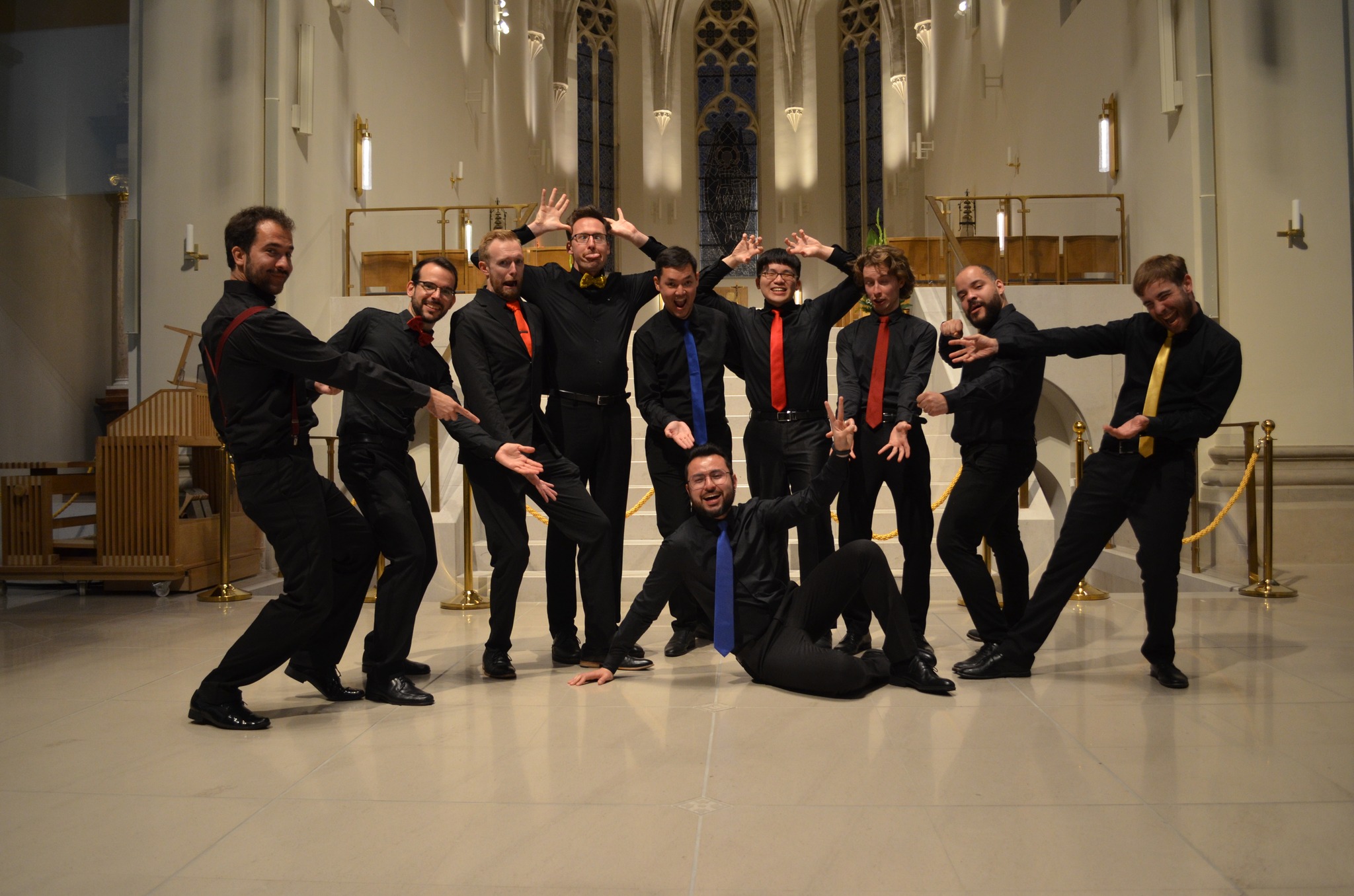
Building friendships with the 40-member choir left unforgettable memories for Bukharbekov (fifth from left), as they shared laughter and their love for music. Photo credit: World Youth Choir Facebook page
“It’s quite a mission to represent your country. For example, some people were surprised that we have quite an established choral tradition in Kazakhstan and they were curious to hear how Kazakh music sounds. I showed some video recordings of performances by my choir. I tried to promote my country, to showcase my best as a professional and as a person. And now I have friends from different parts of the world who want to visit Kazakhstan,” said Bukharbekov.
The social aspect of the choir plays an important part for all the members. To Bukharbekov, the best part was getting to know many people as they shared stories, laughter and their love for music.
“Every moment with all these 40 people from all over the world was memorable because we became friends. We talked so much every evening and in our free time. I made so many new friends and I saw friends with whom I met at the 2019 session. It was a time of reunion. We missed each other. We strengthened our friendship. All those evenings, the jokes and different comic situations are something to remember,” he said.
Drawn from different nationalities, the choir is truly multicultural. The WYC alumni session facilitated an environment where participants shared their unique musical traditions while learning about the rich heritage of others.
“We had ‘All Stars’ evening, which is an event for us where we perform for each other, not the repertoire from the concert, but something from your country to represent your culture. This time it was memorable as we were taught a Turkish dance from a singer from Türkiye. I was dreaming of learning some Turkish traditional dance movements since I’m quite fascinated by Turkish music, and I was happy to at least try to dance,” said Bukharbekov.
“During the last session in 2019, I performed a piece in Kazakh with Asian singers. I chose ‘Ak Sisa’ (White Chintz) by Zhayau Musa because he is from my home region of Bayanauyl,” he added.
Although Bukharbekov completed the project, his relationship with the 40-member choir continues.
Music is the universal language
People who speak different languages with different diction unite to sound like one voice. Through singing, one could overcome the differences in language and culture, according to Bukharbekov.
“Singers are from all over the world and with a different background, yet at the same time we speak one language – the language of music, of academic music of choral art,” he said.
The choir has been transformational in more ways than one. “It was both professional and personal growth,” said Bukharbekov. In some instances, it was very challenging too.
“Since we were all professional and classically trained musicians, everyone could read those quite complicated scores and were prepared. That’s why we mostly worked on the emotional part of music, the dynamics, expression, the blend of voices and the interpretation of the conductor,” said Bukharbekov.
Choir music in Kazakhstan
“Academic music in Kazakhstan is quite developed and supported by the state. It is not uncommon in Kazakhstan,” said Bukharbekov.
Fewer people are exposed to choral music in the age of pop culture, but Bukharbekov tries to expose more Kazakh audiences to choral music in the hope of promoting the diversity it offers.
“Sometimes when we perform sacred music or classical music in Kazakhstan it’s hard to gather a large audience. Of course, there are people who admire and love it. But we still need to influence our audience to promote this kind of music,” he said.
Compared to some countries represented in the WYC that don’t have any choral tradition at all, Kazakhstan promotes choral arts in the country well, he added.
